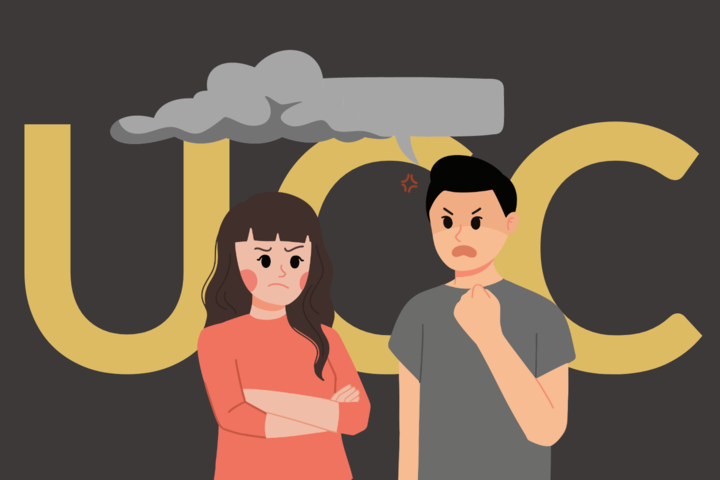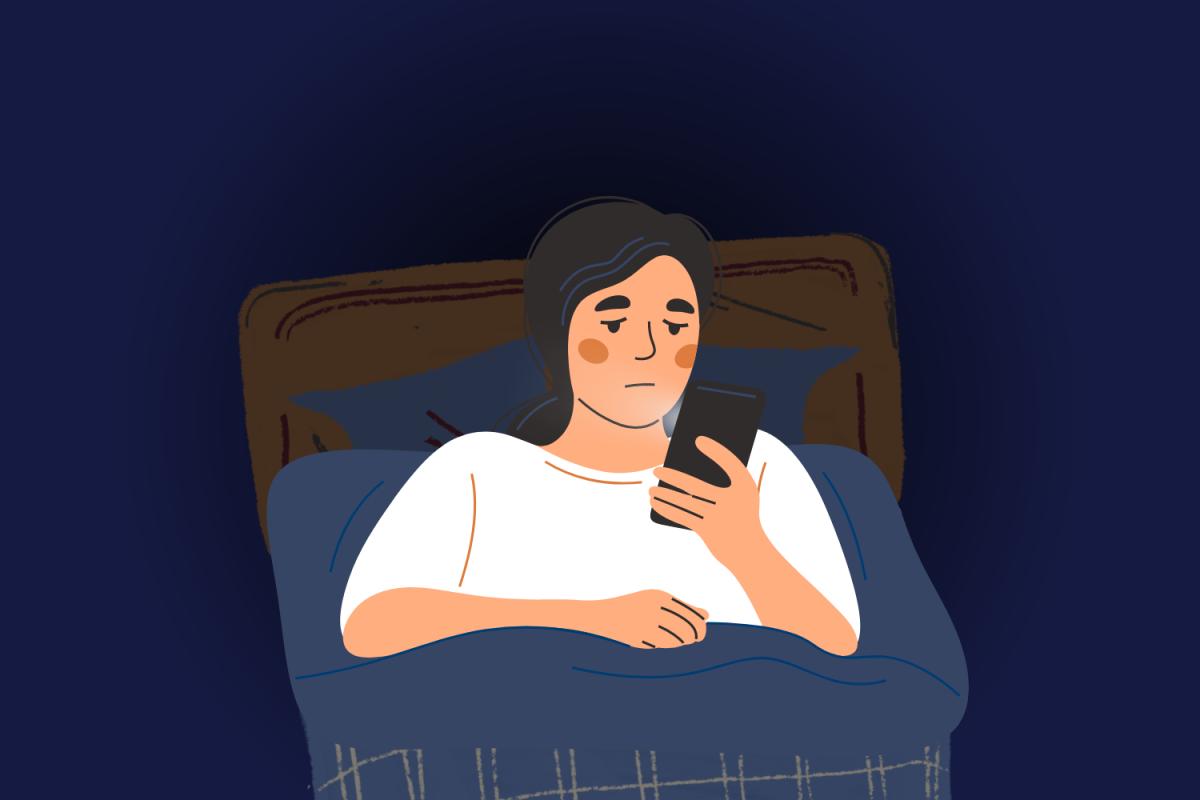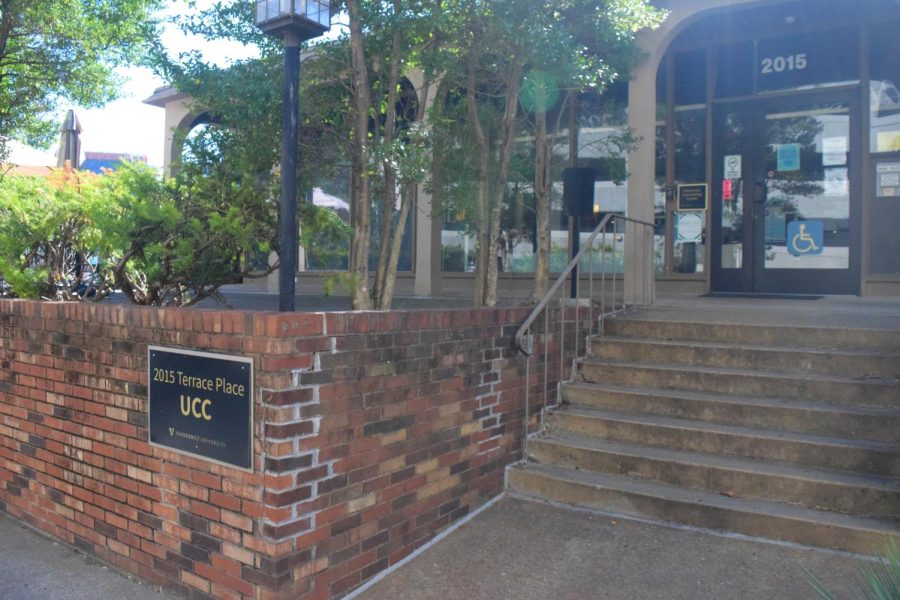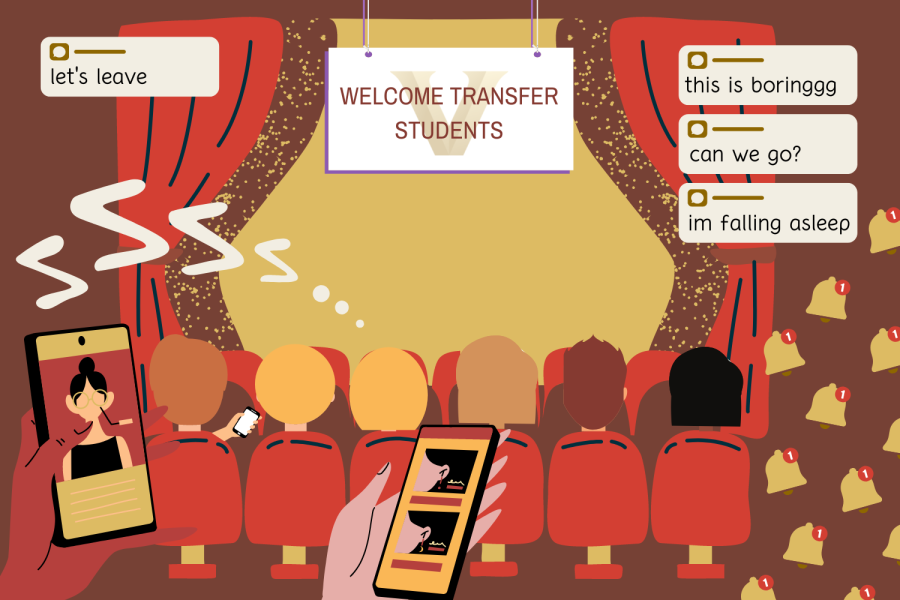Editor’s note: This piece contains mention of suicide.
Raise your hand if you’ve heard something negative about the Student Care Network, the University Counseling Center or any of the mental health and wellness services here at Vanderbilt.
While I have no way of checking whether your hand is raised, I’m going to guess that you have. As a VUceptor and tour guide, I am no stranger to hearing about campus mental health resources and the negative reputation that the Student Care Network (SCN) and University Counseling Center (UCC) have on campus.
Some of the common negative narratives that surround the SCN may be based on misconceptions about how it works. The wellness network starts with the centralized office of Student Care Coordination, which is dedicated to connecting students to the different “arms” or “branches” of the SCN, such as the Center for Student Well-Being (CSW), the UCC, Student Access Services, and identity and belonging centers — informing students of their options and then giving them the freedom to make choices based on the care, or lack thereof, that they desire.
Even if you have a strong understanding of the resources that exist on campus, you might have heard or voiced your frustration about how hard it is to schedule an appointment at the UCC with its long waitlists, therapists and providers that left a sour taste in students’ mouths — citing real and perceived flaws in the system.
My own experience
It’s not hard for me to empathize with students who have a negative view of the SCN, as I’ve had my own troubling experience with a therapist at the UCC. I spent months working with a provider who breached my emotional space and comfort by talking about themselves for the majority of our sessions: about their dating life, family and more. I had been so hopeful that therapy was going to be a healing space for my drowning mental health, yet this initial experience provided no such relief.
It took an unbelievable amount of courage to ask for help when I desperately needed it. And then, in the room that I built up months of bravery to even step into, I felt trapped. My provider once asked after another frustrating session whether or not I felt that the session had helped me, and at the time, I said yes. But of course, spending 40 of the 50 minutes of my allotted time talking about my therapist’s love life had not helped. Not even a little bit.
I was ready to run away from getting help — and run fast. Instead, I built up the courage to go to my Student Care Coordinator and request a switch. I connected with another UCC therapist who, in no uncertain terms, saved my life.
A couple of months later, I was talking with a friend who was struggling and who said they had no intention of seeking help from the UCC because of negative things they had heard about it. It really concerned me to know they had written the SCN off as not worthwhile before they even had a personal experience or interaction with it. Even worse, its reputation was sour enough that to my friend it felt unapproachable.
The problem with criticism
Throughout my process of seeking support with the SCN, even during my worst experiences, I never felt the need to tell people the UCC wasn’t worth the time. Despite its valid and systemic shortcomings, there is no reason to say that parts of the Student Care Network, like the UCC, are incapable of helping students in real and valuable ways. When we air out these frustrations — real or perceived — we may forget the danger that lies in venting about a subject that has already been poisoned with stigma.
It was extremely difficult for me to move past my mental hurdles and ask for help while I was suffering. It is a battle to grapple with real or perceived judgment from others, a lack of support from your family, the hit to your pride that comes with seeking help or past negative experiences with mental health support. I urge you to be careful when you criticize these resources around other people, especially during a time of high vulnerability when the opinions and advice of others can take on an incredible weight.
When we focus solely on the SCN’s issues, we may be indirectly or directly discouraging people in need from seeking help. This pattern is damaging to our campus culture and only serves to exacerbate the mental health crisis young people are facing.
And it truly is a crisis. According to the University of Michigan’s Counseling and Psychological Services, suicide is the second leading cause of death for college students nationwide. Across all college campuses, there have been around 1,100 suicides per year: one in four of our peers know someone who has died as a result of suicide, and two in five know of someone who has attempted suicide. Within our own campus community, we have tragically lost beloved friends to suicide, and the pain of their absence is unbearably heavy.
Given how significant and alarming these suicide rates are, the best service we can provide to our friends, loved ones and peers is making the doors of Student Care seem as accessible and open as possible. Of course, the SCN won’t be perfect at alleviating students’ suffering. But, if it can help at least one more student like me to climb out of a dark place, it is worth it. Even if you do not choose to participate in wellness services on campus, you are still very capable of affecting the wellness of your peers.
The reality of the SCN
Like many university-provided services, the SCN is imperfect, and it is urgent and necessary that administrators work to address its flaws. It cannot be understated that lives hang in the balance when we ask our university leadership to keep working to improve mental health services and respond to student criticism quickly and meaningfully.
In my experience, the UCC’s infamous waitlists have been, in part, a by-product of students trying to book appointments directly with the UCC or other mental health services across campus. It can be frustrating and demoralizing to hit this wall, but the system wasn’t built to work in this way. The centralized “one-stop shop” of Student Care Coordination was meant to roadmap students to the services that best fit their needs while taking care of the bulk of scheduling for the UCC and supporting student scheduling and self-advocacy for other offices. While the calendar online for the UCC will show as red, gray and unavailable, each time I’ve approached the SCC during drop-in hours about receiving care there was an appointment booked the next week.
Not every student on this campus needs — or would benefit from — the short-term therapy provided by the UCC. Therefore, the Student Care Coordination office is capable of matching students to different services that fit their needs and equally is able to maximize staff capacity by directing students who inadvertently take up slots and times from services that won’t offer them the best support.
To those who argue that some therapists at the UCC can be rude, unhelpful or more interested in the clock than your needs — I hear you. I lived it, fought through it and decided to make a change. I think that finding the right therapist is like dating: not every provider you encounter is the right match. While it is true that therapy may not be for everyone, I want to encourage those who maybe haven’t yet found their match to keep trying. A bad match, just like a bad partner, can make things more difficult and exacerbate the problem. It’s also very easy to then share the negative impact that person had on you. However, these bad experiences shouldn’t prevent you from speaking positively about seeking help and from supporting other students in their journey to find their match. It’s unhelpful to encourage others to give up on therapy because you had a bad experience with a therapist, just as you shouldn’t encourage your friends to swear off all men because your ex-boyfriend sucked.
What we need to do now
To the Vanderbilt administrators and those in power who continuously plug mental health resources at the bottom of their campus-wide emails absentmindedly, please consider how you advertise and inform your student body about resources available to them. It is unfair to place the burden solely on the students to figure out how to receive the best wellness care; support for our health — in all aspects and forms — should be a basic need and priority for a place we pay thousands upon thousands of dollars to attend. We’re thankful for the increases in staff and the redesign of the student care software and wellbeing fairs, but there’s more work to be done.
To the students — I urge you to stop spreading negative information about the care resources on campus. All of your experiences, that you either heard about or felt firsthand are incredibly valid and frustrating. Yes, there are real ways Vanderbilt can address the shortcomings in its own support systems. Yes, there are a number of us who did an incredibly brave and amazing thing by seeking help in the first place, and it’s awful that someone or something let us down. These grievances are not our fault.
Instead, we need to consider the power and weight of our words before they affect that person in your life who you swore was doing great — who might now run from help instead of giving it a life-saving chance.
Student Care Coordination has drop-in hours for two hours per day — Monday through Friday — and meetings are available by appointment. If you or anyone you know needs immediate and urgent help, resources like the UCC Crisis Support line can be reached at 615-322-2571, and the national Suicide & Crisis Lifeline can be contacted by dialing 988.












